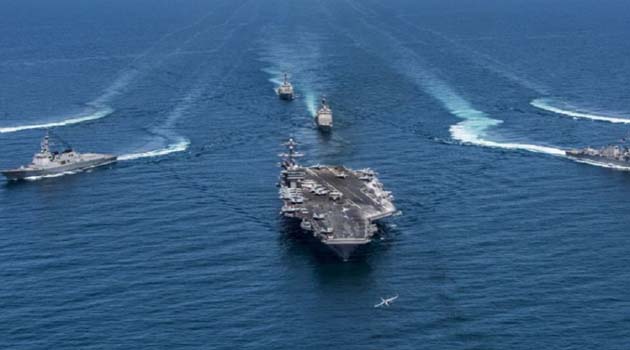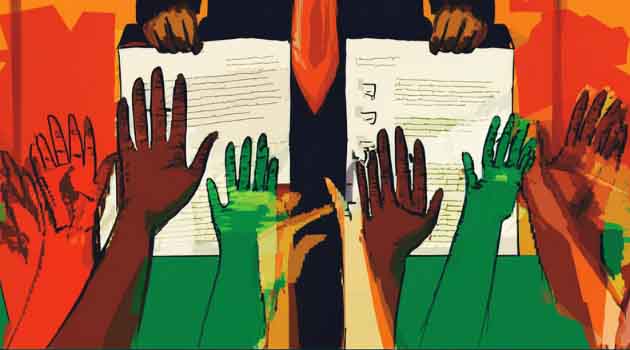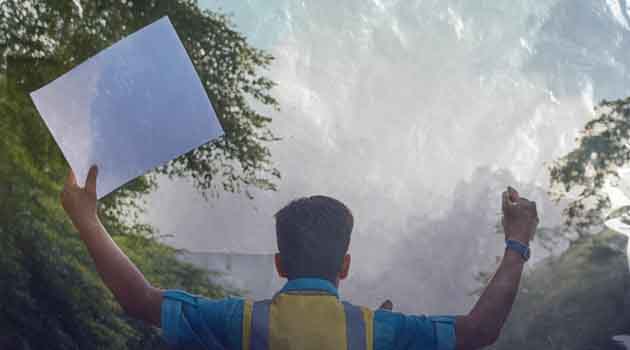Time for Chinese leadership to think
Massive geo-political activities in Asia-Pacific have made the region one of the most focused regions of global politics, so much so that we wonder if Asia is on the verge of receding to early twentieth century Europe, when two world wars were fought owing to messed-up security relations among the nation-states and border disputes among them.
![]() Firstly, South China Sea has become a flashpoint of international politics where Vietnam, Malaysia, Brunei, the Philippines, and Taiwan have territorial claims against China and matter became worse after the announcement of an Award by International Tribunal constituted by Permanent Court of Arbitration.
Firstly, South China Sea has become a flashpoint of international politics where Vietnam, Malaysia, Brunei, the Philippines, and Taiwan have territorial claims against China and matter became worse after the announcement of an Award by International Tribunal constituted by Permanent Court of Arbitration.
![]() Secondly, South China Sea being the major sea lanes of communication has become a special area of interest for the US which is countering China right on its own turf to maintain its hegemony against the US advocacy of ‘Freedom of Navigation’ on High Seas; much in contraventions with the provisions of United Nations Convention on Law of the Sea.
Secondly, South China Sea being the major sea lanes of communication has become a special area of interest for the US which is countering China right on its own turf to maintain its hegemony against the US advocacy of ‘Freedom of Navigation’ on High Seas; much in contraventions with the provisions of United Nations Convention on Law of the Sea.
![]() Thirdly, US initiated its foreign policy of ‘Pivot to Asia’ under which it is trying to wean away countries like Vietnam, the Philippines, Taiwan and India, to expand its appearance in the region.
Thirdly, US initiated its foreign policy of ‘Pivot to Asia’ under which it is trying to wean away countries like Vietnam, the Philippines, Taiwan and India, to expand its appearance in the region.
![]() Fourthly, India has its own multi-layered interests in South China Sea for which it is siding largely with the United States to counter China’s claims and hegemony in the region.
Fourthly, India has its own multi-layered interests in South China Sea for which it is siding largely with the United States to counter China’s claims and hegemony in the region.
![]() Fifthly, India and China are facing a stand-off on their border nearing the tri-junction of India, Bhutan and China where both the armies i.e. China and India are standing like gladiators with both having cudgels in their hands.
Fifthly, India and China are facing a stand-off on their border nearing the tri-junction of India, Bhutan and China where both the armies i.e. China and India are standing like gladiators with both having cudgels in their hands.
![]() Sixthly, India and Pakistan are at loggerheads since their inception; yet the present is the worst situation ever faced by both the countries as they are not even on talking terms.
Sixthly, India and Pakistan are at loggerheads since their inception; yet the present is the worst situation ever faced by both the countries as they are not even on talking terms.
![]() Seventhly, China is the sole super-power in Asia in general and Asia-Pacific in particular. This is an eyesore to both the US and India, which they are contesting and trying to counter. India’s Act East policy seems to be converging with the US ‘Rebalance’ in the region. India is supportive of the US international effort at drawing attention to ‘Freedom of Navigation’.
Seventhly, China is the sole super-power in Asia in general and Asia-Pacific in particular. This is an eyesore to both the US and India, which they are contesting and trying to counter. India’s Act East policy seems to be converging with the US ‘Rebalance’ in the region. India is supportive of the US international effort at drawing attention to ‘Freedom of Navigation’.
It is worthwhile to note that China released a white paper on Asia-Pacific security cooperation in January 2017, warning small and middle sized countries of the region not to take sides with big powers.
China’s Precarious Position
- China’s present moves in the region as well as its presence in different parts of the larger world have heightened the already precarious situations.
- The United States is protected by Oceans on both sides of its physical territory east and west.
- On the other hand, China is in a crowded neighbourhood and shares border with 14 countries.
- Pakistan and North Korea are China’s only allies.
- China is facing difficult relations with Japan, India and Vietnam.
- The Philippines took it to the Permanent Court of Arbitration.
- History of emergence of People’s Republic of China says, Republic of China i.e. Taiwan at one point of time was original China. China claims Taiwan as its breakaway province and hence claims that it will have diplomatic ties with countries of the world only if they accept its ‘One China Policy’.
- American President Donald Trump initially, in the immediate aftermath of assuming office in White House, tried to outflank ‘One China Policy’. The standoff between the two could not continue for long and USA had to blink accepting the same once again. The US today is fighting a low intensity conflict with China, in South China Sea.
- Russia is more than willing for a rebalance of power in Asia but not in favour of the US.
- The United States wants a rebalance of power and is consistently challenging Chinese assertions and everything that contributes towards making Asia a Unipolar continent with China the supreme power of Asia.
- Japan, has its own share of boundary disputes on Sea with China and has both will and potential to challenge and contest China rather than accepting the same as sole super power of Asia.
- India too does not want to leave the turf to China, uncontested. This has led to a bitter struggle with consequent animosities among the major powers of the regions including some external powers.

History Repeating Itself
Given the complex security and strategic relations among the countries of Asia and the power struggle which is going on; it seems history is repeating itself. Asia is on the verge of receding to early twentieth century Europe, when two world wars were fought owing to messed-up security relations among the nation-states and border disputes among them.
China is a prosper nation today. It need to show magnanimity to the neighbours and win their hearts, rather than brow-beat them or deter them with its arsenals and inventories. Political invectives are at its worst by anti-Chinese nations. Chinese goods have made massive inroads across Asian, African, European and American continents. China need to think to continue the same it must look for ways to appease its opponents. China is the sole super power in Asia and it is up to China to keep maintaining it.

Chinese leadership must rethink and draw their learning from history where even a personality like Hitler and Mussolini ended-up ruining their nations and nation-states. Moreover, it is joint responsibility of both China and the US to provide security to the global commons through alliances and cooperation. Unless such an approach is developed, Asia-Pacific will continue to be unstable.











